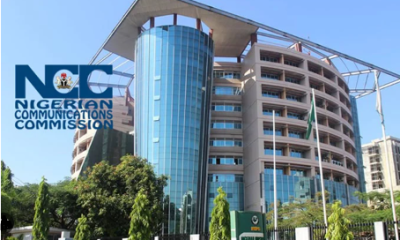Nigerian Communications Commission (NCC) has said effective application of Information and Communication Technology (ICT) is critical in combating financial crimes by enabling real-time surveillance, regulatory compliance, and secure data processing, just as it sought a multidisciplinary and multi-stakeholder collaborations to address issue of illicit financial flows in the country.
Executive Vice Chairman (EVC) of the Commission, Dr. Aminu Maida, who was a speaker at the 11th Anniversary Lecture Series of RealNews Magazine in Lagos on Tuesday, where he was also inducted into the RealNews Hall of Fame in recognition of his outstanding contribution as Guest of Honour at the event, said robust ICT systems are critical for preventing and investigating financial crimes or mitigating the risks associated with virtual assets in the financial markets.
Maida, who was represented at the forum by the NCC’s Director of Public Affairs, Reuben Muoka, described financial crimes as “criminal activities that involve transactions, abuse, misuse, deception, or manipulation of financial systems for personal gain.” He said the crimes also include a wide range of offenses such as Insider abuse, money laundering, terrorism financing, embezzlement and all kinds of fraud.
READ ALSO: Talent Hunt through Hackathon: Three startups receive N10m each from NCC
He said while financial crimes do not only have a huge economic and social impact but can also be linked to violent crimes that lead to loss of lives, they also threaten the integrity, trustworthiness, stability, security, safety, and future of an entity such as a country, enterprise or an individual.
Maida told the audience comprising representatives of the Independent Corrupt Practices and Other Related Offences Commission (ICPC), Nigerian Financial Intelligence Unit (NFIU), among other stakeholders, that the scope of financial crimes has broadened and created further concerns as a result of increasing adoption of digital technologies, the emergence of new technologies, and the often-transnational nature of the crimes.
The Nigeria’s chief telecom regulator said though, as ICT systems get more complex, so do cybercriminal activities, just as criminal actors take advantage of the inherent and emerging flaws identified in the ICT systems exploiting these flaws and causing harm, the same technology has to be positioned to track movement of illicit movement of funds in and out of the country.
“Nigeria’s telecoms sector has grown significantly, resulting in massive amounts of data being generated on a daily basis, the advent of advanced data analytics and artificial intelligence (AI) provides a gateway to identify suspicious digital patterns indicative of crime. Through partnerships with financial institutions data can be filtered to identify these suspicious patterns and nip them in the bud. These technologies provide real-time transaction monitoring, allowing for a proactive approach to crime prevention” Maida said.
Maida further stated that to combat financial crimes, innovative solutions such as blockchain, instant payments, artificial intelligence, machine learning, data analytics, regulatory technology solutions, and automated procedures are being deployed, adding that the use of technological tools has made it significantly easier to deal with financial crime while building a long term strategy for combating it.
READ ALSO: Fintech revolutionizing Nigeria’s financial ecosystem—NCC EVC, Maina
Meanwhile, Maida stated that, aside ensuring increased access to telecommunications services, the Commission has established the Computer Security Incident Response Team (CSIRT), a group of experts in the Commission to handles security incidents that can affect the operations of organisations and individuals; incorporated biometric authentication in the use of telecom services and financial transactions on telecom carriers with strict enforcement of compliance by the licensees; as well as enabling digital forensics, among others.
In addition to the need for public education and understanding of internet safety, which are important in limiting the risks linked with the spread of criminality via technology, Maida emphasized the need for increased collaboration and international cooperation to effectively tackle financial crime. “Also, continued investment in ICT solutions, as well as a multidisciplinary and multi-stakeholder strategy, combining technology specialists, legal professionals, and legislators, as a critical approach in keeping up with emerging criminal methods,” he said.

 News1 week ago
News1 week ago
 Agribusiness1 week ago
Agribusiness1 week ago
 Football5 days ago
Football5 days ago
 Football1 week ago
Football1 week ago
 Football1 week ago
Football1 week ago
 Entertainment4 days ago
Entertainment4 days ago
 Football6 days ago
Football6 days ago
 Football6 days ago
Football6 days ago













